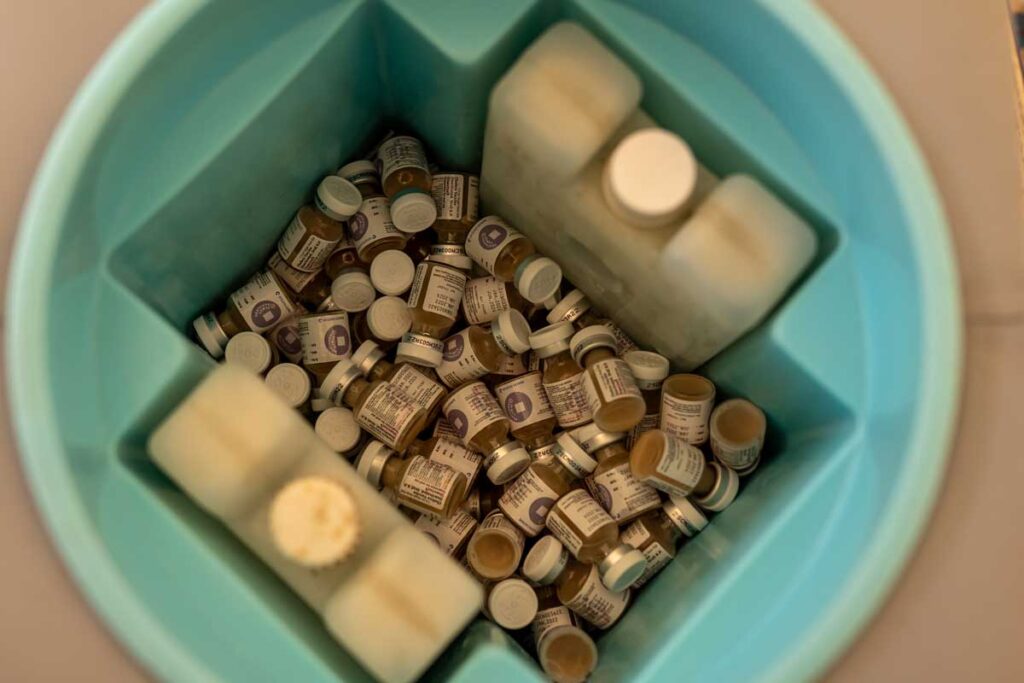Vaccine Outbreak Responses Saved Millions, Averted $32B in Costs – New Study Reveals
A groundbreaking new study has revealed that emergency vaccination responses to infectious disease outbreaks have reduced deaths by nearly 60% between 2000 and 2023, while generating an estimated US$ 32 billion in economic benefits. Conducted by researchers at the Burnet Institute in collaboration with Gavi, the Vaccine Alliance, the study is the first to quantify the historical global impact of emergency vaccination on public health security.
Published this week in the BMJ Global Health, the study analysed 210 outbreaks of cholera, Ebola, measles, meningitis, and yellow fever in 49 low-income countries. It found that in addition to cutting deaths by 60%, vaccination efforts reduced disease cases by a similar margin, significantly decreasing the likelihood of large-scale epidemics.
“For the first time, we are able to comprehensively quantify the benefit, in human and economic terms, of deploying vaccines against outbreaks of some of the deadliest infectious diseases,” said Dr Sania Nishtar, CEO of Gavi. “This study demonstrates clearly the power of vaccines as a cost-effective countermeasure to the increasing risk the world faces from outbreaks.”
Yellow Fever showed the most dramatic results. Outbreak response efforts reduced cases by 98% and deaths by 99%. Gavi-supported routine immunisation and timely mass campaigns were key in achieving these results.
Ebola response efforts led to a 77% reduction in cases and 76% reduction in deaths. Since 2014, when no approved vaccine existed, Gavi has helped develop global stockpiles to prevent a recurrence of such devastating events.
Measles vaccination efforts during outbreaks reduced cases by 59% and deaths by 52%, with a noted decline in large-scale outbreaks. However, recent declines in vaccine coverage due to the COVID-19 pandemic have led to a resurgence.
Cholera response campaigns reduced cases by 28% and deaths by 36%, highlighting the importance of both vaccination and investment in water, sanitation, and hygiene (WASH) infrastructure.
Meningitis outbreaks caused by strains other than meningitis A saw a reduction in cases and deaths by 27% and 28% respectively. The introduction of a new multivalent vaccine now offers hope of eliminating these strains as well.
Many of the vaccination campaigns analysed in the study were funded by Gavi, which provides full financial and logistical support for vaccine doses and delivery in eligible lower-income countries. Emergency stockpiles managed by global health partners including IFRC, MSF, UNICEF, and WHO ensure that vaccines are accessible and rapidly deployable.
Looking ahead to its 2026–2030 strategic period (Gavi 6.0), the Alliance plans to expand its efforts, maintaining stockpiles for existing diseases and establishing new ones for emerging threats like mpox and Hepatitis E. Gavi will also scale up preventive vaccination in high-risk regions and improve outbreak preparedness through Day Zero Financing and the First Response Fund, which have already proven effective in recent health emergencies.
The economic value of the vaccination efforts was calculated conservatively, without factoring in broader impacts such as lost productivity, educational disruption, and health system strain. For comparison, the 2014 West African Ebola outbreak alone cost over US$ 53 billion, largely due to the absence of a vaccine at the time.
“This study is a wake-up call and a call to action,” Dr. Nishtar added. “Fully funding Gavi’s next strategic cycle is not just a moral imperative — it is a smart investment in global health security.”



